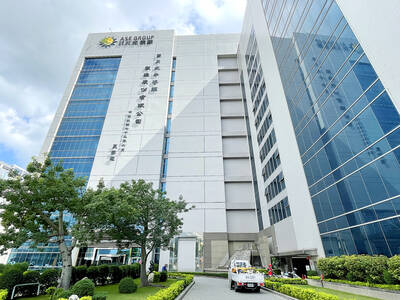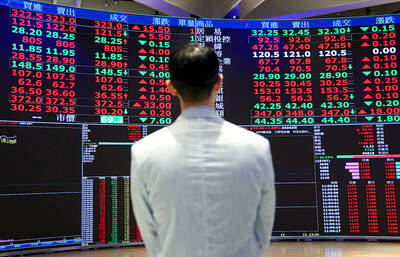Tax reforms and continued efforts to improve government finances will be the two main priorities of the government this year, Minister of Finance Ho Chih-chin (
"The scheduled expiration of the Statute for Upgrading Industries [
"We will reach a preliminary conclusion by the end of January, but a formal presentation will have to wait until the end of the Lunar New Year holidays," he said.
The minister also said the ministry would keep tax rates low, while broadening the tax base and simplifying the tax administration and push for reforms such as the consolidation of profit-seeking enterprise income tax and consolidated income tax.
With increased tax revenues and strict budget control by the Directorate-General of Budget, Accounting and Statistics, the central government's balance sheet last year was expected to break even for the second year, the ministry said.
While only 97 percent of the NT$160 billion (US$4.9 billion) central government budget last year was used, higher tax revenues will exceed that amount, said a ministry official who declined to be identified.
"The effect of the minimal taxation regulation [
But Ho said the national budget, which includes that of the central government, local governments and some special budgets, was still in deficit.
The government will work to improve its financial health by decreasing the debt burden, he said.
The liability of the nation's public debt was evaluated at NT$5 trillion, deputy minister Liu Teng-cheng (
Taiwan's public debt accounted for 40.7 percent of its GDP and 226.1 percent of its tax income last year, Fitch Ratings estimates showed.
The focus of the press conference, however, was on the ministry's position on Taishin Financial Holding Co's (台新金控) aggressive move in offering Chang Hwa Commercial Bank (彰化銀行) shareholders 1:1.3 Taishin shares in order to complete the merger between the two institutions.
The ministry holds four seats on the Chang Hwa board, to Taishin Financial's eight.
The Chang Hwa Bank labor union recently intensified its opposition to the deal, saying the share swap ratio offered by Taishin Financial did not favor Chang Hwa. In a statement on Wednesday, the union urged the ministry to take a tougher stance on the offer.
Finance ministry officials were silent on the controversial merger.
"We will protect the interest of the government as well as that of other shareholders," Ho said, without elaborating.
Chang Hwa is scheduled to hold a special board meeting today to make its own proposal.

EXPANSION: The investment came as ASE in July told investors it would accelerate capacity growth to mitigate supply issues, and would boost spending by 16 percent ASE Technology Holding Co (ASE, 日月光投控), the world’s biggest chip assembly and testing service provider, yesterday said it is investing NT$17.6 billion (US$578.6 million) to build a new advanced chip packaging facility in Kaohsiung to cope with fast-growing demand from artificial intelligence (AI), high-performance-computing (HPC) and automotive applications. The new fab, called K18B, is to commence operation in the first quarter of 2028, offering chip-on-wafer-on-substrate (CoWoS) chip packaging and final testing services, ASE said in a statement. The fab is to create 2,000 new jobs upon its completion, ASE said. A wide spectrum of system-level chip packaging technologies would be available at

Taiwan’s foreign exchange reserves hit a record high at the end of last month, surpassing the US$600 billion mark for the first time, the central bank said yesterday. Last month, the country’s foreign exchange reserves rose US$5.51 billion from a month earlier to reach US$602.94 billion due to an increase in returns from the central bank’s portfolio management, the movement of other foreign currencies in the portfolio against the US dollar and the bank’s efforts to smooth the volatility of the New Taiwan dollar. Department of Foreign Exchange Director-General Eugene Tsai (蔡炯民)said a rate cut cycle launched by the US Federal Reserve

HEAVYWEIGHT: The TAIEX ended up 382.67 points, with about 280 of those points contributed by TSMC shares alone, which rose 2.56 percent to close at NT$1,400 Shares in Taiwan broke records at the end of yesterday’s session after contract chipmaker Taiwan Semiconductor Manufacturing Co (TSMC, 台積電) hit a fresh closing-high amid enthusiasm toward artificial intelligence (AI) development, dealers said. The TAIEX ended up 382.67 points, or 1.45 percent, at the day’s high of 26,761.06. Turnover totaled NT$463.09 billion (US$15.22 billion). “The local main board has repeatedly hit new closing highs in the past few sessions as investors continued to embrace high hopes about AI applications, taking cues from a strong showing in shares of US-based AI chip designer Nvidia Corp,” Hua Nan Securities Co (華南永昌證券) analyst Kevin Su

Nvidia Corp’s major server production partner Hon Hai Precision Industry Co (鴻海精密) reported 10.99 percent year-on-year growth in quarterly sales, signaling healthy demand for artificial intelligence (AI) infrastructure. Revenue totaled NT$2.06 trillion (US$67.72 billion) in the last quarter, in line with analysts’ projections, a company statement said. On a quarterly basis, revenue was up 14.47 percent. Hon Hai’s businesses cover four primary product segments: cloud and networking, smart consumer electronics, computing, and components and other products. Last quarter, “cloud and networking products delivered strong growth, components and other products demonstrated significant growth, while smart consumer electronics and computing products slightly declined,” compared with the